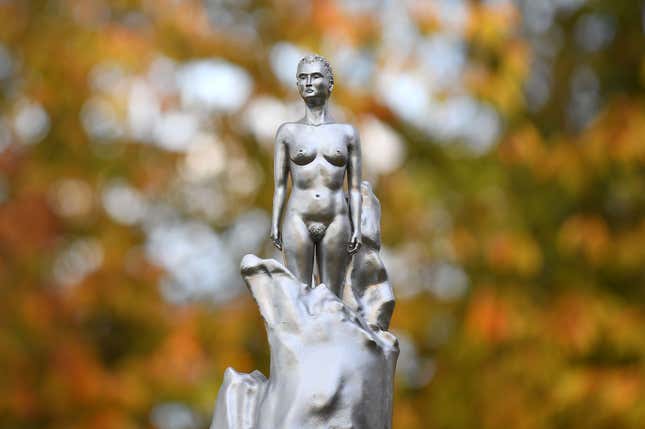New 'Everywoman' Statue Goes Bush-Out for Feminism, Just Like Mary Wollstonecraft Would Have Wanted
In DepthIn Depth

A new statue in North London’s Newington Green dedicated to celebrating Georgian-era feminist and author Mary Wollstonecraft reads “I do not wish women to have power over men, but over themselves.” To illustrate this idea, the effigy features a naked lady with perky breasts, great abs, and a truly magnificent bush, just like A Vindication of the Rights of Women demanded.
Now, one might say the point of A Vindication of the Rights of Women was actually that women shouldn’t be merely decorative, like say, completely naked with a body that conforms to often harmful beauty ideals. But this superficial read is false. A closer look suggests that, nope, the liberty women most enjoy is the right to flash cooter in public. Clearly when Wollstonecraft addressed her confusion with the arguments of fellow author Dr. Gregory, who “advises [women] to cultivate a fondness for dress, because a fondness for dress, he asserts, is natural to them,” by responding, “I am unable to comprehend what either he or Rousseau mean, when they frequently use this indefinite term,” Wollstonecraft actually meant that she never understood why women weren’t allowed to get their tits out, provided they were nice tits with jauntily pert nipples like the ones on the statue.
-

-

-

-

-

-

-

-

-

-

-

-

-

-

-

-

-

-

-

-

-

-

-

-

-

-

-

-

-

-

-

-

-

-

-

-

-

-

-

-








































